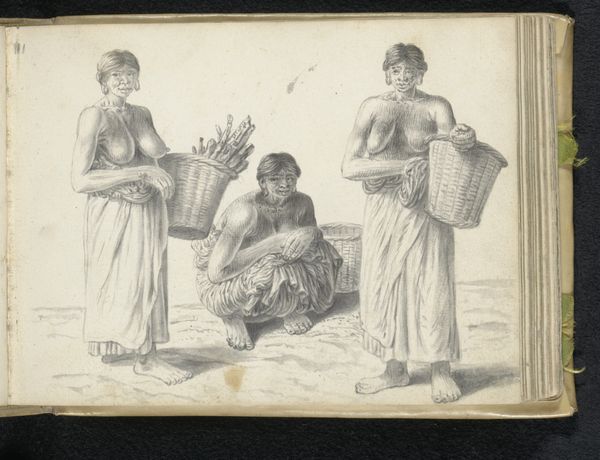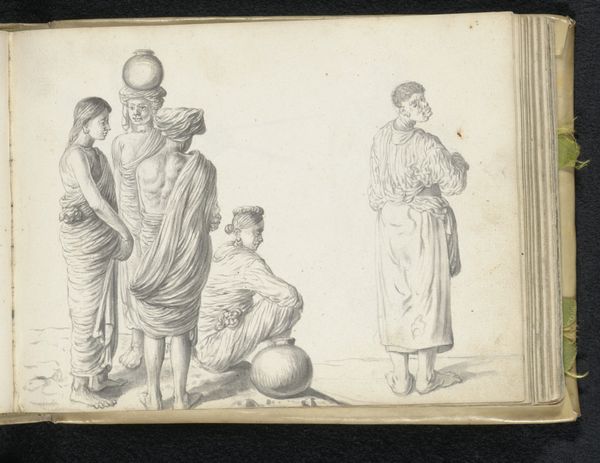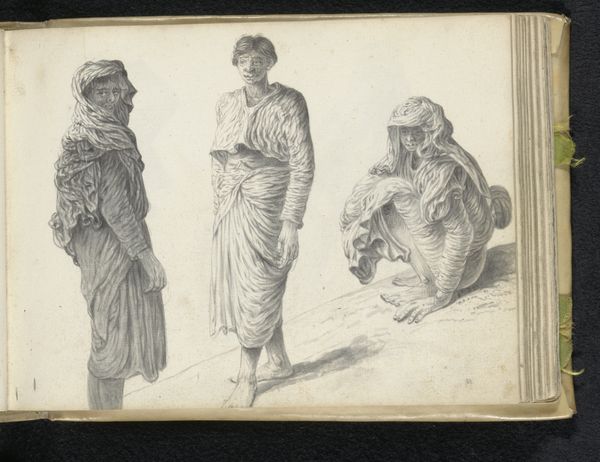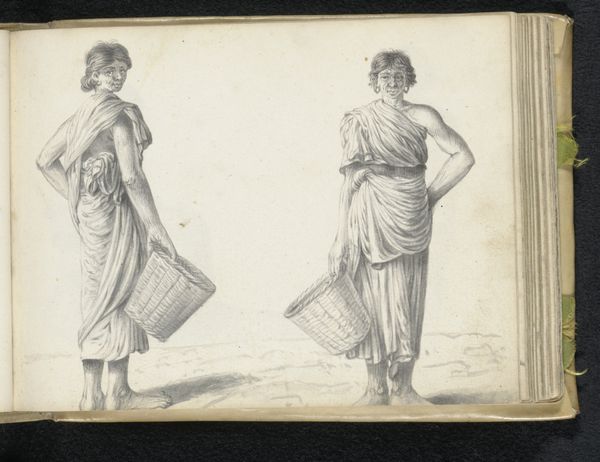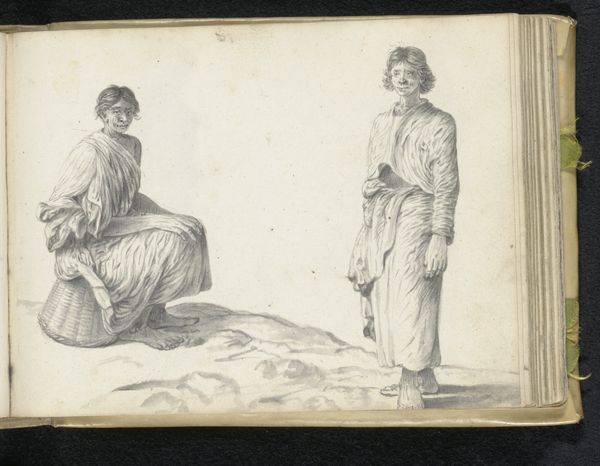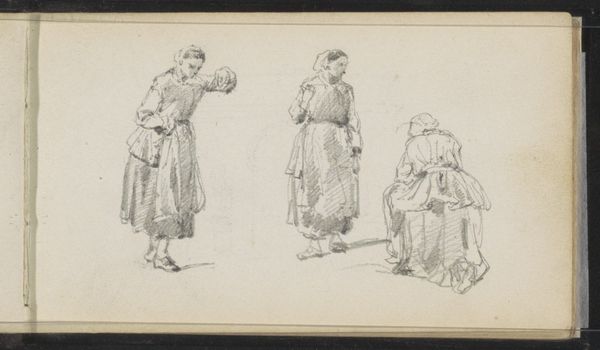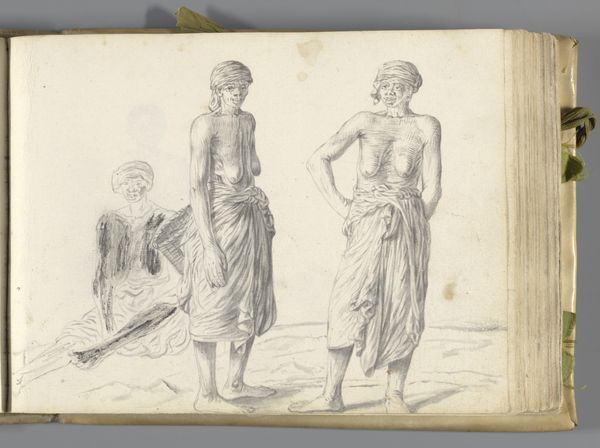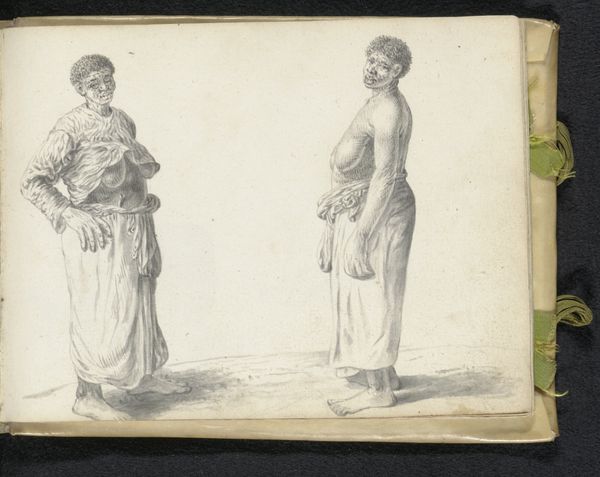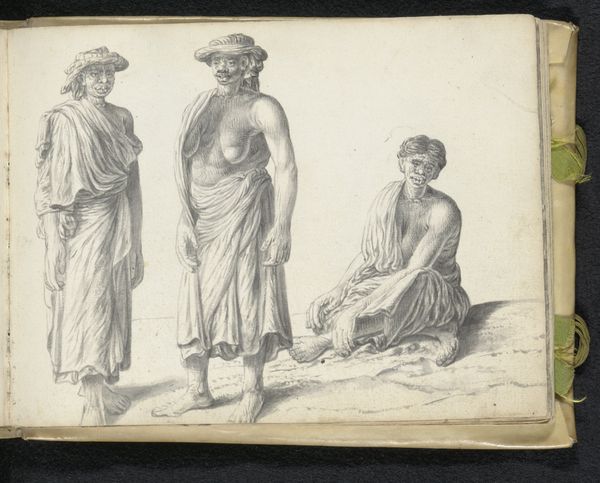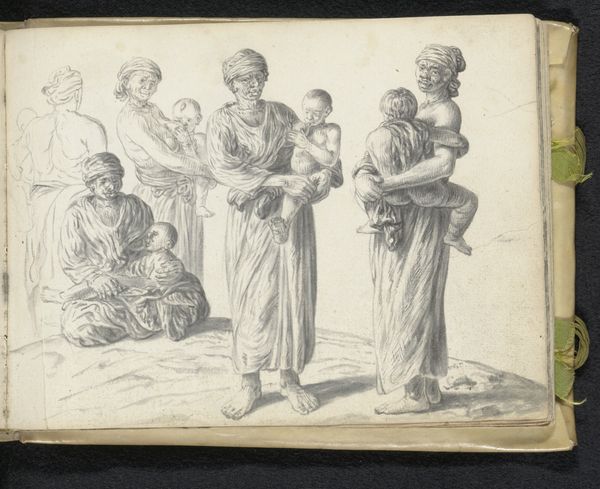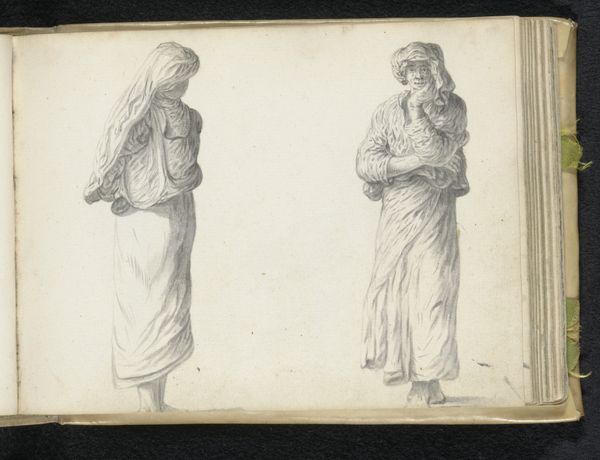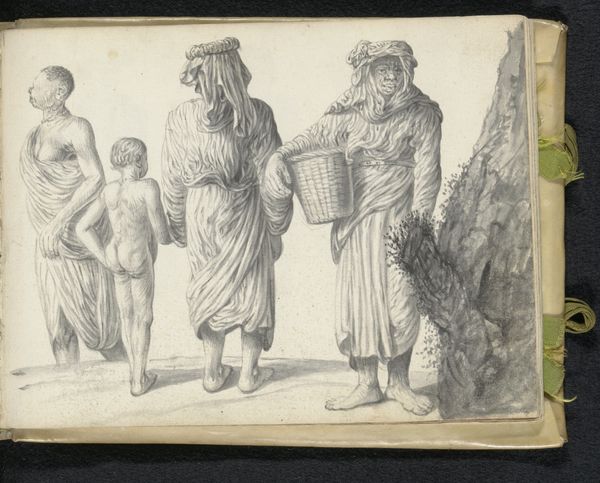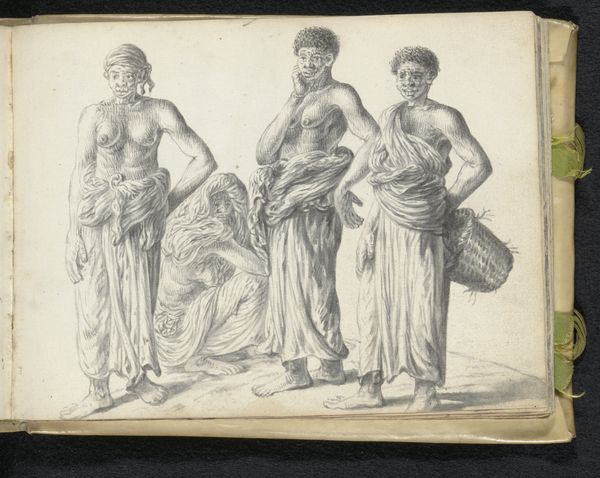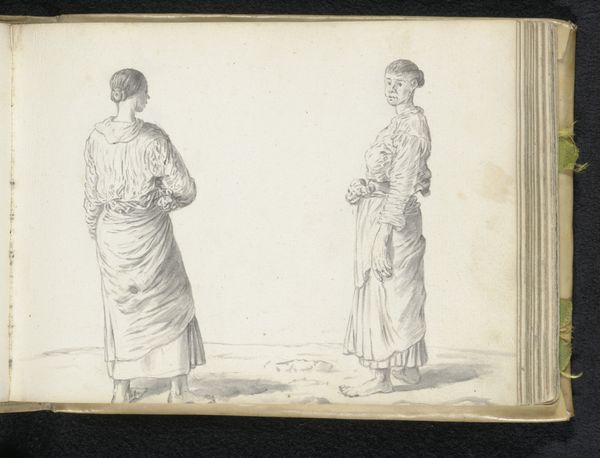
drawing, paper, pencil
#
portrait
#
drawing
#
paper
#
pencil
#
genre-painting
#
realism
Dimensions: height 148 mm, width 196 mm
Copyright: Rijks Museum: Open Domain
Esaias Boursse created this drawing titled "Three Sinhalese Women" sometime in the 17th century, using graphite. Boursse was employed by the Dutch East India Company, a powerful entity whose trade routes were built on the exploitation and colonization of various countries, including Ceylon, now Sri Lanka. The artist's depiction of these women in a seemingly objective manner belies the historical and social context of the time. As a European man, Boursse was undoubtedly influenced by prevailing colonial attitudes towards non-European people. The image invites us to consider how the identities and histories of these women are mediated through the lens of a colonizer. What does it mean for a foreign artist to capture their likenesses, and for what purpose? The drawing does not maintain traditional representations of Sinhalese women of the time. Rather, it offers a glimpse into the lives of individuals caught within larger power structures, highlighting themes of cultural exchange, representation, and the gaze. This work is a stark reminder of the human cost of colonial expansion.
Comments
No comments
Be the first to comment and join the conversation on the ultimate creative platform.
